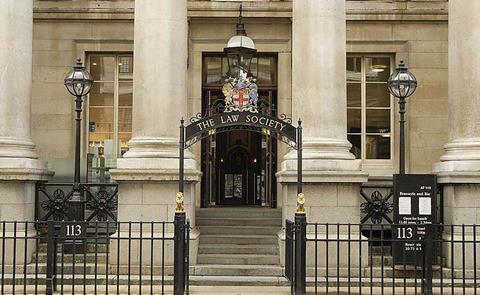Public bodies that have administrative decisions overturned by courts and tribunals should pay the costs of the claimant to the legal aid fund – together with a surcharge, the Law Society has said.
This is one of a series of proposals in a submission to the new government to ensure affordable access to legal advice in the wake of funding cuts, new court charges and restrictions on the right to judicial review.
The submission, entitled ‘Affordable Legal Services for Everyone’, proposes:
- Improving the way courts work, especially with new technology;
- Solicitors ‘working differently’, including, in virtual firms and, with ‘some concerns’, offering unbundled advice;
- A proper, supported role’ for free legal advice which signposts people to the help they need. This could included solicitors providing initial advice pro bono;
- Technology and innovation to enable access and efficiency;
- The right level of funding by government for affordable justice;
- Incentivising public bodies to make the right decisions early to save them paying later, including by requiring them to pay a claimant cost surcharge.
The submission stresses that pro bono legal services cannot cover the gap left behind by the legal aid cuts. While 65% of solicitors already provide some pro bono advice, this ‘cannot exist in a vacuum’, the Society says. ‘If advice agencies continue to be cut, then there will inevitably be a decline, not a growth, of pro bono provision.’
However it says that an area where pro bono might work is a system through which solicitors working pro bono help clients decide what type of legal service they require.

‘This could be done via face-to-face appointments, drop-in clinics, telephone advice lines or through a web interface. This model would mean people who can’t afford, (or think they can’t afford) a lawyer could receive initial advice about their legal problem.’
When it comes to civil litigation, ‘alternative methods of funding should be encouraged’, the submission says. ‘In addition to existing insurance products, there is scope for loan arrangements to be developed to enable legal services to be properly funded.’
Law Society chief executive Catherine Dixon (pictured) said: ‘Our recommendations build on what solicitors are already doing, such as using technology to provide accessible services. We recommend that the courts follow solicitors’ lead in using technology to operate more efficiently.
'The cost to the taxpayer could be reduced if there was more of an incentive for public bodies to make better decisions. This also means ensuring people get the right advice at the right time from legal experts. Solicitors are the best-trained, insured and regulated professionals to provide this advice.’



























8 Readers' comments